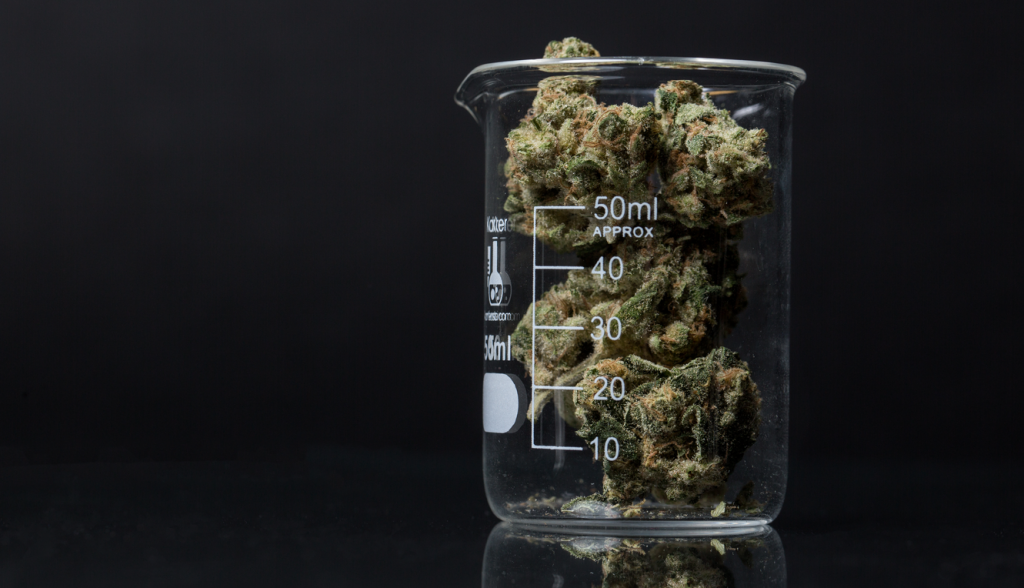While not all those who experience trauma will develop PTSD, for those who do, the traumatic event is often re-lived both day and night. While usually treated as a psychological disorder, PTSD was shown in a 2013 Chinese study to be linked to structural changes in the brain caused by the trauma itself.
“What you have to do is look up each symptom (of PTSD) and you will see that cannabis has been studied and found effective almost every time,” Michael Krawitz, the executive director of Veterans for Medical Cannabis Access (VMCA), told Weedmaps News in a telephone interview.
Veterans are one of the segments of the population hardest-hit by PTSD. More than 30 percent of Vietnam War veterans suffer from PTSD, for example, according to the National Institute of Health (NIH). And the rates for veterans of other more recent U.S. wars including Afghanistan, Iraq and Operation Desert Storm are all in the double digits.
A Virginia-based nonprofit patient advocacy group, the VMCA has been advocating for the listing of PTSD as a condition eligible in each state with a medical marijuana program. The group has been successful in getting the condition listed in all medical marijuana states except Alaska.

“New Mexico, the first state that listed cannabis for PTSD, is the No. 1 cited reason for using cannabis for this condition,” said Krawitz, referring to a 2014 study done in New Mexico and published in the Journal of Psychoactive Drugs. It found that veterans with PTSD that consumed cannabis experienced a more than 75 percent reduction in the symptoms used by psychiatrists to officially diagnose PTSD.
“The main thing is the memory eraser function.” Krawitz explains.“With PTSD, a scene is burnt into the brain and disturbs your sleep, which in turn affects your daily functioning because of lack of sleep. Cannabis allows for better sleep and begins to reverse that process. Cannabis can also alleviate hyper-alertness.”
One of the most common symptoms of PTSD, hyper-alertness, causes stress, anxiety, anger, and irritability that can negatively affect daily living.
“Hyper-alertness may help you when you are living in the battlefield of Afghanistan, but when you come home and can't turn it off, it becomes a problem,” Krawitz said. “With cannabis, they get better quality time with family, kids, etc.”
Veterans are not the only group experiencing PTSD. In the U.S., women, in general, are 2 1/2 times more likely as men to experience PTSD in their lifetime — 10 percent vs. 4 percent — with sexual assault being by far the most common traumatic event involved.
Many of these women are turning to cannabis for relief. The website for Survivors for Cannabis, an online “space for survivors of sexual trauma who use cannabis to treat PTSD,” contains testimonies of women who share their experiences overcoming PTSD with the help of marijuana.

Having suffered from PTSD from the age of 18 until her early 40s, Helene said she believes marijuana can be used much like psychedelic substances to go deep into what she said the ancient Greeks called the “psyche” and unravel the mechanisms that keep people locked in the grips of disorders like PTSD.
Research has shown that THC can modify brain plasticity in protective ways while CBD is able to stimulate the growth of new neural cells of the brain that were damaged by stress.
“In the women's cannabis talking circles that I lead, the idea is to create a safe space where memories can be accessed, re-accessed and re-written. It's a type of rebirth. The memory remains but the charge has been defused,” Helene told Weedmaps News, referring to her Cosmic Sisters of Cannabis initiative, which also provides grants for women to explore cannabis liberation both personally and professionally, Cosmic Sisters of Cannabis is partially funded by the Multidisciplinary Association for Psychedelic Studies (MAPS), which researches therapeutic effects of marijuana and psychedelics such as psilocybin, or “magic mushrooms.”
MAPS is currently conducting a long-term pilot study on veterans with treatment-resistant PTSD. The study, which received a $2 million dollar grant from the Colorado Department of Public Health, is approved by the FDA and its results could pave the way for cannabis reform on the federal level.

No comments:
Post a Comment